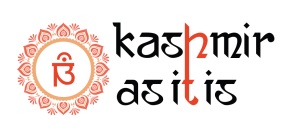NAME –Lalleshwari is known as Lal Ded (“Mother Lalla, Lal Dyad, Lalla Aarifa, Lal Diddi, Lalla Yogishwari/Yogeshwari and Lalishri)
Born – Lal Ded is believed to be born to a Brahmin (Pandit) family near Pandretha, Kashmir (1320 – 1392) around 14th century.

Childhood – She married at age twelve, but her marriage was unhappy and she left home at twenty-four to take sanyas (renunciation) and become a disciple of the Shaivite Guru Siddha Srikantha (Sed Bayu). As a part of her religious education, she travelled alone on foot, surviving on alms, before becoming a teacher and spiritual leader herself.
Contributions –Lal Ded was a Kashmiri Mystic of the Kashmir Shaivism school of Hindu philosophy. She was the creator of the style of mystic poetry called Vatsun or Vakhs, literally “speech” (from Sanskrit vaak). A total of 285 poems Known as Lal Vakhs, her verses are the earliest compositions in the Kashmiri language and are an important part in the history of modern Kashmiri literature. Lal Ded’s vakhs drawn from influences and languages that made contact with the Indian sub-continent in her life, drawing from Sanskritic, Islamic, Sufi, and Sikh cultures. She continued the mystic tradition of Shaivism in Kashmir, which was known as Trika before 1900.

Lal Ded is also believed to be a contemporary of Mir Sayyid Ali-Hamdani, an Iranian Sufi scholar and poet, who recorded stories of her in his own verse during his travels to Kashmir. Lal Ded and her mystic musings continue to have a deep impact on the psyche of Kashmiris, and the 2000 National Seminar on her held at New Delhi led to the release of the book remembering Lal Ded in Modern Times. She is also noted in a Persian chronicle, the Waqiati-e-Kashmir (1746) in which she is described as being famous in the reign of Sultan Alau-ud-din (1343–54).
The leading Kashmiri Sufi figure Sheikh Noor-ud-din Wali (also known as Nooruddin Rishi or Nunda Rishi) was highly influenced by Lal Ded. He ultimately led to the formation of the Rishi order of saints and later gave rise to many Rishi saints like Resh Mir Sàeb. One Kashmiri folk story recounts that, as a baby, Nunda Rishi refused to be breast-fed by his mother. It was Lal Ded who breast-fed him.

To the outer world, Lal Ded is arguably Kashmir’s best known spiritual and literary figure; within Kashmir, she has been venerated both by Hindus and Muslims for nearly seven centuries. For most of that period, she has successfully eluded the proprietorial claims of religious monopolists. It is true that Lal Ded was constructed differently by each community, but she was simultaneously Lallesvari or Lalla Yogini to the Hindus and Lal’arifa to the Muslims.
Grierson’s translation was the first printed and published volume of Lal Ded’s works. Following his translation, a number of English translations have been produced, notably those by Pandit Ananda Koul (1921), Sir Richard Carnac Temple (1924) and Jaylal Kaul (1973). More recent translations include those by Coleman Barks, Jaishree Odin Kak and Ranjit HoskoteIn Kashmir. some people consider her a poet, holywoman, a sufi, a yogi, or a devotee of Shiva. Some even consider her an avtar. But every Kashmiri considers her a wise woman. Every Kashmiri has some sayings of Lalla on the tip of their tongue. The Kashmiri language is full of her sayings.
REFERENCES:
http://www.ikashmir.net/lalded/index.html





